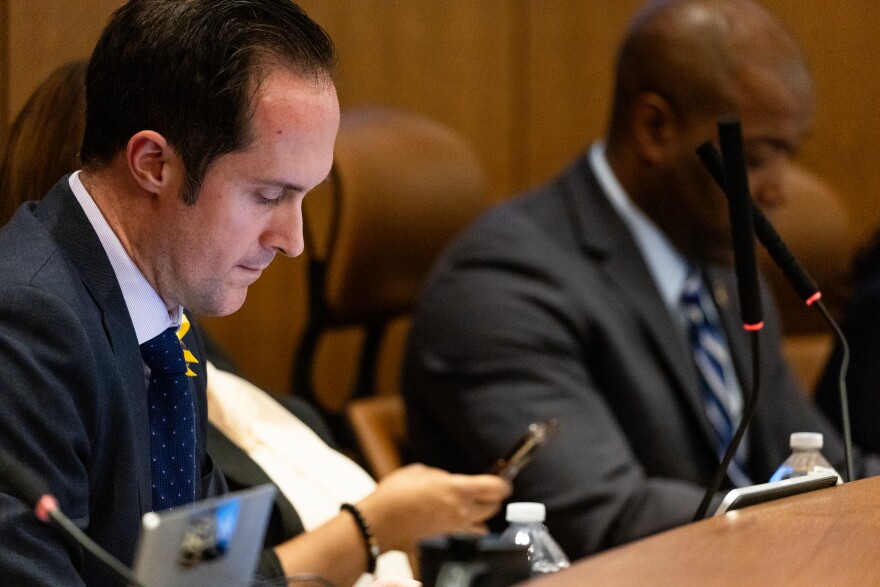Virginia legislation barring public universities from giving preferential treatment to children of alumni or donors when making admissions decisions has sailed through both chambers.
Last week, a bill sponsored by state Sen. Schuyler VanValkenburg (D–Henrico) cleared the Senate floor — and Del. Dan Helmer’s (D–Fairfax) bill cleared the House floor on Tuesday.
VanValkenburg told VPM News that last year’s U.S. Supreme Court decision prohibiting colleges from using race-conscious admissions kickstarted a broader conversation about all the factors schools consider.
“I think what folks realized — including myself — was how big [of] a piece legacy admission was to this process,” VanValkenburg said. “And I think a lot of people realized how wrong that was.”

Some Virginia universities, like Virginia Tech, have recently announced changes to admissions policies concerning legacy status. But a fall 2022 report from nonpartisan think tank Education Reform Now found the majority of Virginia’s public universities gave at least some preferential treatment to the children of alumni at the time of the study.
And some state schools still consider legacy status in admissions decisions. The Virginia Military Institute considers legacy connections in a yes/no application question — which accounts for 4.35% of the college’s weighted admission score.
“If an applicant selects ‘yes,’ then they are prompted to provide the names, class years, and relationship (e.g., mother, father, grandfather, aunt) of alumni relatives,” said university spokesperson Michelle Ellwood.
According to Ellwood, 4% of current freshmen have a parent who attended VMI, and 24% of freshmen have a family member that attended the institution.
The College of William & Mary also still uses legacy status in admission decisions as part of its Common Application, according to spokesperson Suzanne Clavet. Clavet said “applicants have an opportunity to share information about their parents including universities they attended.”
However, Clavet did not respond to a VPM News question about how much weight this question receives in admissions decisions compared to other factors – nor a question about the percentage of current students with a legacy status; VPM News has subsequently submitted a public records request to obtain this information.
The University of Virginia allows consideration of legacy status through an optional essay question they added last year, though spokesperson Bethanie Glover said in a statement that “no portion of the application is ranked or weighted, nor do application readers have access to a check box for ‘legacy.’ We take into consideration each applicant's unique story and journey, and offer admission to those who will thrive here and contribute positively to the experience of those around them.”
A recent Harvard University study of 30 elite colleges found that students from affluent families in the top 1% were far more likely to get admitted than other lower-income students with similar test scores. Interestingly, researchers found that at the University of Virginia, higher-income applicants were no more likely to get admitted than lower-income students.
The same study, though, found that the largest advantage for the group of rich students was their legacy status — and that legacy students were at least three times more likely to gain admission.
“If there's special privilege … that shouldn't afford someone a cut in line because of the family's donor status, or legacy status if your parents went there,” state Sen. Jeremy McPike (D–Prince William) told VPM News; he also sponsored legislation to prohibit preferential treatment of legacy admissions in Virginia.
So far, only Colorado has passed legislation prohibiting colleges’ preferential consideration of legacy status — though a few other states like Connecticut, Massachusetts and New York are also considering similar legislation.
“The reality is that in too many colleges across America, we use legacy admissions in order to give folks a leg up not because of what they've done, but because of who their parents are,” Helmer said.



